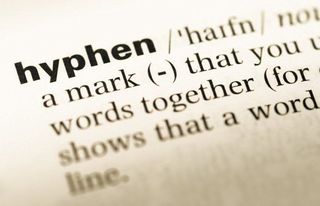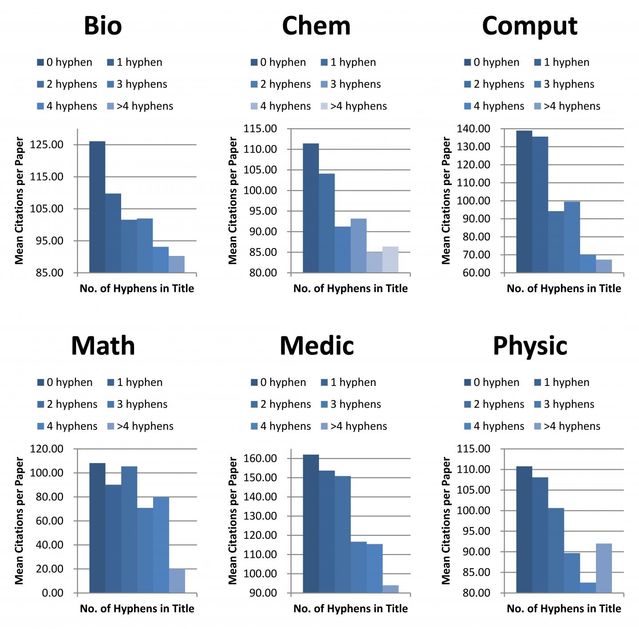Education
One Small Hyphen in a Title Could Diminish Academic Success
Hyphens may hurt citation counts, a new state-of-the-art (egad!) study reports.
Posted June 3, 2019 Reviewed by Lybi Ma

Hyphens in the title of academic papers may result in lower citation counts and reduce journal "impact factors" (JIF) regardless of quality, according to a recent field-wide analysis.
The press release for this new study (Zhou et al., 2019) referred to these findings as a "warning to academics," and says:
"The presence of simple hyphens in the titles of academic papers adversely affects the citation statistics, regardless of the quality of the articles. The phenomenon applies to all major subject areas. Thus, citation counts and journal impact factors, commonly used for professorial evaluations in universities worldwide, are unreliable. This breakthrough finding poses a fundamental challenge to the rule of the game in determining the contributions of papers, journals, and professors."
The three authors of this paper are T.H. Tse, who is a computer science professor at the University of Hong Kong (HKU); Zhi Quan Zhou, who received his Ph.D. from HKU and is currently an associate professor in software engineering at the University of Wollongong in Australia; and Matt Witheridge, who is a doctoral student at UOW.
For this analysis, Professor Tse and his team used a new state-of-the-art method called "metamorphic robustness testing" to verify the accuracy of the Scopus database and Web of Science, which are the two leading citation indexing systems for academic papers. Both the Times Higher Education World University Rankings (THE) and QS World University Rankings are based on citation statistics provided by Scopus. Web of Science supplies the "impact factor" indices that are used to rank major peer-reviewed journals.
As you can see in the diagram below, their field-wide robustness testing unearthed some analytic defects in both systems that may result in erroneous citation counts and lower JIF scores for papers that have a hyphen (or multiple hyphens) in the title.

Because citation practices differ between academic subject areas, the authors divided their analysis into six categories: biology, chemistry, computing, mathematics, medicine, and physics. As mentioned, they found that hyphens adversely affected citation counts for academic papers across the board.
"Our results question the common belief by academia, governments, and funding bodies that citation counts are a reliable measure of the contributions and significance of papers. In fact, they can be distorted simply by the presence of hyphens in article titles, which has no bearing on the quality of research. Similarly, our results also challenge the validity of journal impact factors," Professor Tse said in the HKU press release. "These surprising results are of interest not only to professors seeking tenure or promotion, but also to the senior management such as presidents, deans, and heads. They are applicable to all faculties in any university."
If you're curious to learn more about the difference between the hyphen (-), the en dash (–), and the em dash (—) check out this informative (and humorous) video from the New Yorker's copy editor extraordinaire, Mary Norris, author of Between You & Me: Confessions of a Comma Queen.
References
Zhi Quan Zhou, T.H. Tse, Matt Witheridge. "Metamorphic Robustness Testing: Exposing Hidden Defects in Citation Statistics and Journal Impact Factors." IEEE Transactions on Software Engineering (First published: May 7, 2019) DOI: 10.1109/TSE.2019.2915065


